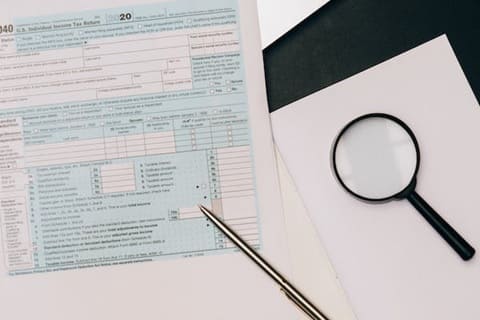
Every resident of the United States who has a job or any other income is required to file a USA tax returns every year, in the spring.
You can file a tax return from January 1, but for filing you need extracts from various banks, insurance companies, a form on the amount earned for the year from the employer (W-2 or 1099), which can be received no later than the end of January. They are usually sent out throughout January.
Usually the tax return is filed before April 15 of each year, but if it falls on a weekend, it is moved to the next weekday. In 2023, it was moved to April 17.
Those who must file a USA tax returns
Quite simply, you must file a tax return if you:
- Are a USA tax resident;
- We received a certain minimum amount of income for the entire last year.
USA tax residents are primarily USA citizens. Permanent residents (green card holders). Work visa holders. In many cases, even a person who does not have the right to work can also receive non-earned income, such as alimony, and will also be considered a tax resident.
Income that is indicated in the declaration
Almost all income can be taxed. Here are the main types:
- salary, bonuses, vacation pay, commissions, tips;
- dividends, interest on deposits;
- income (on the difference) from the sale of property, securities;
- alimony;
- pension payments;
- all kinds of benefits (for disability, unemployment, etc.);
- income from the lease of real estate in the oren;
- royalties;
- prizes, winnings, legal compensation;
- some types of grants, including student ones;
But if you did not receive any income last year, or your income was very small, then you do not need to declare anything. Of course, it still depends on whether you work, what age you are, what your marital status is, and so on.
If you are self-employed, or say you have income from dividends, tips, royalties, and the like, and it exceeds $400 (for the entire year), then you must also file a tax return.
Remember that filing a USA tax returns is better than not filing at all. In most cases, when answering the declaration questions, it will immediately become clear whether you should send it or not.

Ways to file a tax return
The tax return is sent to the Internal Revenue Service (IRS) in two main ways:
- By mail
- Electronically — the IRS provides for this in several ways: by filling out tax forms directly on the IRS website or using commercial services such as TaxAct, Turbotax, TaxSlayer, H&R Block, Credit Karma and others.
If you do not have any difficulties with income, marital status, write-offs, then it is quite possible to fill out the declaration yourself.
If your income and deductions are too complex to understand all the nuances, it is better to use the services of a professional tax advisor who can save you time and money.
Tax audit
After filing a tax return, there is a mechanism of checks – a tax audit. It occurs selectively or in the presence of obvious errors recorded by the IRS computer, in addition, you can file a complaint with the IRS. Spot checks fall on about 1% of declarations. These are very serious checks, and in order to prove your truth, you need to present evidence, checks and coupons, extracts and certificates. Then you can avoid a large fine.
If you didn’t indicate something in the declaration, you can even be sued for hiding income and tax evasion, as this is a serious violation in America.
Advice for the taxpayer
When seeking advice, be careful. It happens that scammers pretend to be tax consultants. And then the taxpayers themselves carry all their important data into the hands of fraudsters, with which they can dispose of as they please. Therefore, it is very important to go for a consultation only to a well-known, proven specialist.
There is only one way to protect yourself from this type of fraud – carefully protect your personal data. Your address, your SSN, your W-2 details, and other financial details.
Read more : https://taxtaxation.com/basic-taxes-in-the-usa/


